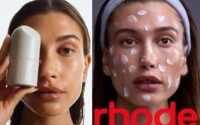‘Screening needs to be mandatory’
Botox isn’t without its risks — on mental health, too.
People who wish to undergo cosmetic treatments such as Botox should have their mental health assessed beforehand, an expert has advised.
The accessibility and low cost of cosmetic injections is feeding into body-image issues — and is part of the reasoning behind the call for mental health assessments, in addition to reports of painful side effects by under-informed patients.
Dr. Toni Pikoos, an Australian clinical psychologist who specializes in body image and related disorders, told the Guardian that psychological risks are often ignored by regulators — adding the relatively low cost of cosmetic injections “can make them an even more dangerous space than surgery.”
“They’re seen as being these quick and easy low-risk treatments… [but] the research tells us that body dysmorphic disorder (BDD) and other mental health issues are much higher prevalence in people seeking nonsurgical cosmetic procedures,” Pikoos said.

Patients that have had Botox treatments claim they’ve been “medically gaslit” after receiving the treatment, and told the side effects were normal, according to the outlet.
A study from the American Society of Plastic Surgeons found Botox injections were the most popular noninvasive cosmetic procedure in 2020, with 4.4 million procedures performed.
Patients undergoing cosmetic surgeries are required to first meet and discuss their procedures, with doctors referring them to a psychologist if they have concerns.
However, the same protocol is not required for Botox.
Pikoos explained that the industry is “highly unregulated,” and, unfortunately, people are being taken advantage of, adding some people are more “vulnerable.” They are “just getting anything that’s recommend to them,” said Pikoos.
“Mental health screening needs to be mandatory for all procedures,” the psychologist said. “I’ve seen lots of clients who have had really bad experiences with anti-wrinkle injections and fillers, who were really vulnerable at the time that they went to go to a clinic.”


